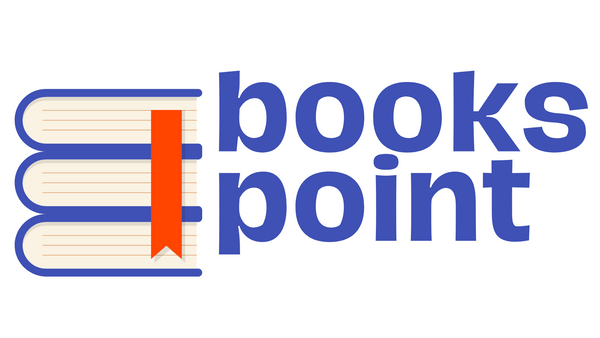
Why Just Reading Self-Help Books Isn’t Enough: How to Truly Benefit from Them
Share
Self-help books are now popular in modern society. They offer approaches to overcoming life's challenges, ideas that can result in a better life, and success in both personal and professional undertakings. These works, which range from modern favorites like James Clear's Atomic Habits to classics like Napoleon Hill's Think and Grow Rich, are frequently seen as instruments for personal development. But the truth is that even after reading a ton of self-help books, many readers still find themselves the same as before.
This brings up an important question: why do so many people read self-help books yet never truly change? More significantly, how can we use reading to better our lives and take meaningful action? To help you realize the full power of self-help books, we shall go deeply into these questions in this blog.
The Enticement of Self-Help Books
There is no denying about the popularity of self-help books. They are heavily advertised with sweet promises like "Unlock the secrets to success!" or "Transform your life in 30 days!" We usually pick these books when we are looking for direction, motivation, and some different approaches we can apply to our lives. This is regardless of age, gender, or societal status, everyone reaches a point where they need to change their lives.
The ideas and stories presented in a self-help book might make you feel empowered and hopeful. As readers, we are frequently inspired by the authors' insights and affected by stories of people who have overcome hardships. But the true difficulty, starts when the book is closed through consistent action.
The Psychology Behind Inaction
Having knowledge about the psychology of inaction might help you better understand why it becomes difficult to implement what you have learned into practice. Here are several main reasons:
1. Inner conflict
When we read a self-help book, we may experience a mental discomfort that arises when our beliefs or behaviors conflict with theinformation we get as we read. For example, if a book emphasizes the importance of waking up early to boost productivity, but you are used to sleeping through the morning, you may internally resist the idea despite recognizing its validity. This internal conflict can lead to inaction, as we often prefer to maintain our established habits rather than face the discomfort of change.
2. Fear of Failure
Change by its nature is risky, and the fear of failure can hold many people back from applying the lessons learned in self-help books. This fear often comes from past experiences where attempts to change have resulted in setbacks or disappointments. As a result, individuals may convince themselves that they are not capable of implementing the ideas discussed in the self-help books and they resort to not taking any actiion.
3. Overwhelm
Self-help books often present a lot of information and, strategies. This lot can be overwhelming, causing readers to feel paralyzed by choice. Instead of focusing on one or two actionable steps, you may become dragged down by the lot of information and just decide not to take any action at all.
How to Benefit from Self-Help Books
To truly benefit from self-help books, you must shift your mindset from passive reading to active engagement. Here are some practical steps which you can use to transform your reading into meaningful action:
1. Choose Books That Match with Your Current Challenges
Rather than simply picking the latest bestseller, select books that specifically address the challenges you’re facing. This targeted approach ensures that the content is relevant to your current situation, making it easier to apply the lessons learned.
For example, if you are struggling with procrastination, look for books focused on productivity and time management. If you're dealing with relationship issues, seek out titles that provide insights into communication and emotional intelligence or if you have financial issues, get books about wealth creation and money management. By aligning the books you read with your current situation, you set yourself up for greater success from your reading.
2. Take Notes and Reflect
Actively engaging with the books you read is so vital for retaining the information and then apply it. Consider keeping a journal dedicated to your self-help reading. Write down key points, and observations you can reflect with your personal life as you progress through each chapter.
Questions you can consider include:
- What stood out to you in this chapter?
- How can you apply these concepts in your life?
- What challenges might arise when implementing these ideas?
Taking notes not only reinforces the material but also provides a valuable reference point for future reflection.
3. Set Clear, Actionable Goals
Put the ideas you get from reading self-help books into specific, actionable goals. After each chapter, take time to identify at least one concrete action you can take based on what you've learned. This could involve adopting a new habit, practicing a technique, or changing your mindset about a particular issue.
For example, if you read about the importance of gratitude, set a goal to write down three things you’re grateful for every day for a month. Setting clear goals helps translate theoretical knowledge into practical applications.
4. Focus on One Book at a Time
Self-help books are alluring by nature. You might end up reading multiple books at the same time. This may weaken your concentration and make it more difficult for you to put what you've learnt into practice. Instead, dedicate yourself to one book at a time, allowing yourself to fully absorb its teachings before moving on to the next one.
5. Apply What You Learn Immediately
As soon as you learn something, put it into practise immediately. Delaying to take action may lead to the fall down of the motivation to practice.
If you read a book on building confidence, don’t wait until you feel more confident to try out its strategies. Start by practicing them in low-stakes situations, gradually expanding your comfort zone. The sooner you begin applying the lessons, the more likely they will become ingrained habits.
6. Stay Consistent and Review Regularly
Personal growth is a long-term process that requires consistent effort. Make a commitment to regularly revisit the lessons learned from the book, assessing your progress and adjusting your approach as needed.
Questions for self-assessment can include:
- Are you seeing results from the strategies you implemented?
- What challenges have you encountered, and how can you overcome them?
- How can you reinforce the concepts in your daily routine?
By reviewing your progress, you maintain a sense of accountability and stay connected to your goals.
7. Be Patient and Compassionate with Yourself
Transforming yourself is a process that takes time. In order to successfully go through the ups and downs of change, you must be compassionate with yourself. The journey is definitely filled with challenges, and maintaining commitment requires self-compassion.
Acknowledge what you have accomplished and keep in mind that progress requires time. Celebrate your accomplishments, no matter how minor, and see setbacks as chances to improve.
Conclusion: Turning Reading into Action
Self-help books are a great source of knowledge and strategies for personal development, but they work best when combined with practice. The real power of self-help is found in doing, not reading.
Approaching your reading with purpose and a resolve to improve will help you realize the transforming power of self-help literature. By actively interacting with the content, establishing specific objectives, and putting the knowledge gained to use, you can transform insights into real advancements.
Self-help books can be helpful companions on the continuous path of personal improvement. Thus, the next time you pick up a self-help book, keep in mind that you should live it rather than just read it. You'll see the significant influence these books can have on your life if you make a commitment to actively take part in your own development. Knowledge is power, after all, but real change can only be achieved when it is combined with action.
